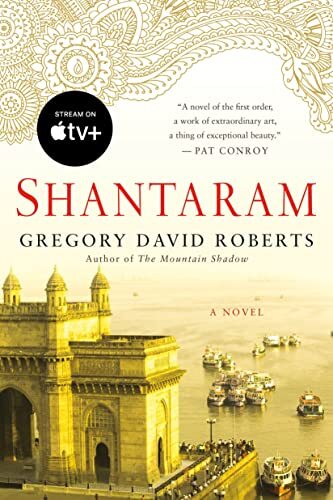
An entertaining, occasionally moving story that’s too damn long. It about an Australian convict who escaped from prison and fled to India and his adventures getting to know Indian culture, living in the slums, dealing with the Indian Mafia, and so on. Apparently, parts of the story are based on real events in the author’s life.
The good
-
There are lots of wonderful, well-developed characters. Prabaker, Karla, Abdel Khader Khan, Didier, Abdullah, Nazeer, and the main character, Lindsay (Linbaba) all feel real and alive. You can see Parabaker’s smile; you can feel Kader Khan’s power; you want to have a drink with Didier.
-
The book does a fantastic job of introducing you to life in India. Having never been there, I have no idea how accurate it is, but for a while, I felt like I was living there. I could smell the slums; I could feel the pain he feels in Indian prisons; I laughed and smiled at the Indian head shake; I could relax and feel at peace in the Indian countryside. Occasionally, I’d get into the book so much, that when I’d be walking around my home, I’d be surprised to find I wasn’t in India.
-
There is beautiful writing and a good bit of philosophical discussions. The philosopher mafia don is particularly fun.
The not so good
-
The book is way too long. More than a dozen times, I thought it was over, but the story just kept going. There’s no clear character ark or storyline; it’s just a seemingly random mishmash of events, and at times, it can really drag on.
-
Occasionally, there’s too much philosophizing and stream of consciousness. A little philosophy in a novel is great, but as with everything else, this book drags it out just a little bit too much. Hearing the author’s take on love, suffering, and the meaning of life once is great; hearing it a dozen times is too much.
-
The book can feel a little cartoony at times. The main character repeatedly gets beat down and horribly injured, only to bounce back like nothing happened. Once or twice would’ve been good for drama, but in this book, it’s repeated very frequently, and there’s only so many beatings and torture scenes you really want to read through…
Quotes
As always, I saved a few of my favorite quotes from the book:
Indians are the Italians of Asia and vice versa. Every man in both countries is a singer when he is happy, and every woman is a dancer when she walks to the shop at the corner. For them, food is the music inside the body and music is the food inside the heart. Amore or Pyar makes every man a poet, a princess of peasant girl if only for second eyes of man and woman meets.
But in a way you can say that after leaving the sea, after all those millions of years of living inside of the sea, we took the ocean with us. When a woman makes a baby, she gives it water, inside her body, to grow in. That water inside her body is almost exactly the same as the water of the sea. It is salty, by just the same amount. She makes a little ocean, in her body. And not only this. Our blood and our sweating, they are both salty, almost exactly like the water from the sea is salty. We carry oceans inside of us, in our blood and our sweat. And we are crying the oceans, in our tears.
Nothing ever fits the palm so perfectly, or feels so right, or inspires so much protective instinct as the hand of a child
There is a difference between the dishonest bribe and the honest bribe. The dishonest bribe is the same in every country, but the honest bribe is India’s alone.
